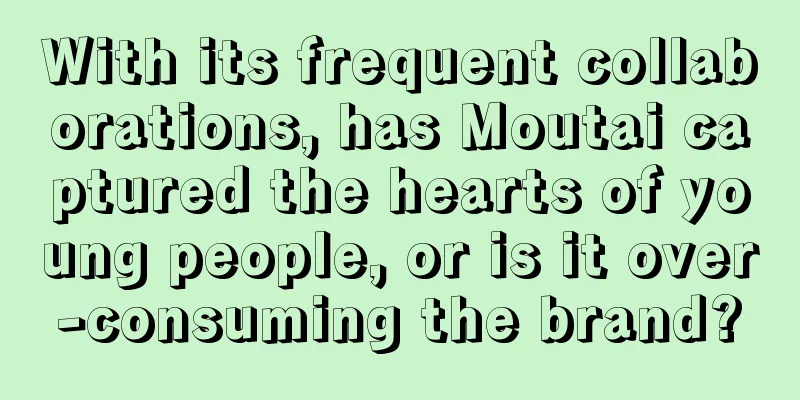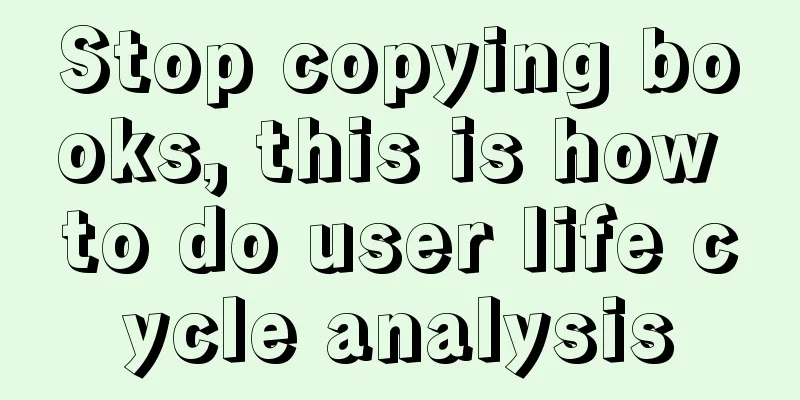Contemporary workers are forced to suffer from "word-pleasing syndrome"

"Word-pleasing syndrome" refers to adding various modal particles and punctuation marks at the end of a sentence in order to show friendliness and soften the tone. It often occurs in online conversations, such as internal company communication tools and WeChat chat boxes. This is not a new topic, but on May 29, the topic of "diagnosed word-pleasing syndrome" once again topped the Xiaohongshu hot search list. After a small-scale survey, it was found that "Ha", "La", "Ya" and "Di" can be collectively referred to as the four kings of "word-pleasing syndrome". They can be used in different sentences and are an indispensable part of this syndrome. Examples in work scenarios are as follows:
If Chinese lost the word "ha", the world would suffer 50% more anger; if the Four Heavenly Kings were lost, peaceful work would no longer be sustainable. Of course, the above dialogue seems less real because, apart from the four kings, there is also the top wave number that has not appeared. In fact, the discourse mode used by young people at work is closer to "Let's align the plan today~" The Chinese teacher in school will not explain the mystery of "~" because it does not conform to the usage standards of modern Chinese, but in the workplace, a set of "~" usage guidelines is the first lesson that young workers are forced to learn. 1. The first lesson for entering the workplaceOu Le recalled that when she first started using WeChat in junior high school, she had never heard of so many troublesome chat etiquettes, and everyone spoke "normally" when chatting on WeChat. After entering high school, a friend suddenly asked her why her tone was always cold when chatting. Ou Le was puzzled, and she recalled: "I didn't think it was a big deal at the time, I said it was not (cold), I speak like this, and my normal tone is like this." The real change came after she graduated from college and entered the workplace. As a content operator, Ou Le often needs to connect with employees from other companies. When chatting, the counterparts will more or less use words like "ha" and "la". Ou Le was not used to using them at first, but she found that if she used a normal tone, the other party would often misunderstand her or not understand what she meant. So, she quickly succumbed to the tilde. After two years of work, Ou Le has mastered a set of text optimization rules. "Now I either use one tilde (~) or three tilde (~~~), and add some modal particles. For example, 'OK~' or 'OK~', but 'OK' and 'HA' cannot be used together." Mai Sui, who has been working for four years, has had a similar experience. In 2019, she just graduated from college and joined a company to be responsible for brand work. At first, she continued the language habits of her student days and did not deliberately pay attention to the tone of the chat conversation. "I didn't add tilde marks when I sent things before, but now I do. Because I found that if I don't say that, the other party will think I have a temper, and then they will immediately have a temper." Mai Sui said that once during a work connection, there was obviously no conflict, but she inexplicably felt an awkward aura, as if the other party was emotional. Later she found out that the other party mistakenly thought she was angry because of the tone of the chat. After working for a year, Mai Sui got used to this set of chat rules, "I found that as soon as I added tilde marks and said thank you for your hard work, he thought I was fine." But she still couldn't say words like "dear" or "baby". Using extremely intimate words to address someone who was not so close to her was hard for Mai Sui to accept. Until now, the most intimate titles she used at work were still "sister" and "brother". In 2019, Lin Mu joined an Internet company that values honesty. Like most Internet companies, Lin Mu found that the company emphasizes flatness. When addressing superiors, they either call them by their names or nicknames. Once they call out titles such as "Brother So-and-so" or "Sister So-and-so", they will be gently reminded not to call them that. When working across departments, when facing unfamiliar colleagues, they are also addressed as "Classmate So-and-so" instead of their titles. But even in Internet companies, "text-pleasing syndrome" is a common phenomenon. Lin Mu found that everyone is used to gentle language patterns. "Even if he wants to reject my request, he will reply 'We are not able to support this for the time being'. It sounds very gentle, right? But in fact, the rejection is very straightforward." Lin Mu paused for a moment and said, "It's the one who was very popular a while ago, and he politely rejected it." A campus recruit who joined the company a year earlier than Lin Mu also shared with her the rules for using exclamation marks in the workplace. "She often uses exclamation marks in communication. Once I asked her why, she told me that it makes her look energetic." Lin Mu later learned that in an Internet company, everyone's work connection takes place online and they can't see each other, so this set of "skins" is very suitable. Lin Mu said that if a surveillance camera was installed at her workstation, she would be able to see her typing a bunch of exclamation marks in the dialog box, and the excitement in the text was like a monkey who had just received a banana, while she was slumped with a look of despair on her face, showing an expression of "going to work is like going to a grave." 2. Say the harshest words and draw the longest tildeLin Mu found that in the workplace, even when people are arguing, they will continue this seemingly peaceful language pattern, creating an illusory "peace and love". "Can you imagine? When two business parties are arguing, everyone will add a tilde when they pull the boss into the group and post a small essay (complaining to the boss or seeking the boss's decision). They will say a lot of things, and at the end, they will tag the other boss and say, 'Thank you for taking a look.'" Lin Mu was not used to it at first and felt it was fake. "You are already complaining about others, why are you still adding tildes and modal particles?" But after working in the industry for a few years, Lin Mu found that this fake style is to maximize the avoidance of emotional loss of control caused by language omissions, and to politely show each other a "not personal, but objective" attitude, reduce possible contradictions, and get the results you want as soon as possible. At this point, the so-called "word-pleasing syndrome" can hardly be considered as a real "pleasing". It is more like a declaration of attitude and a common skill in the workplace. Just like tennis players shake hands in front of the net before leaving the court, and fencers salute with swords before starting to fight, workers in the workplace must grab resources in a decent manner even if they have to. Lin Mu's observation is that this decent discourse model will not only appear in subordinates' reports to superiors and cross-departmental docking, but also in the discourse of superiors to subordinates. Especially the grassroots and middle-level management of Internet companies, whether assigning tasks to subordinates or discussing business, will try their best to make themselves look equal. "If you deserve a low performance, you will still be given a low performance, but the daily language will show respect for you and be friendly to you, which can also be regarded as a management method." Lin Mu concluded. But higher-level management, on the contrary, doesn't care much about these details of expression. They care more about the accuracy and efficiency of information transmission. Aside from the disguise of language symbols, personal style will be more obvious. After getting used to the bombardment of tildes and modal particles from the counterparty, Mai Sui can already judge the other party's demands from the chat mode, which are hidden in the details of the language. "If he wants to ask you for help with something, or feels embarrassed about doing something to you, the first sentence he says when he comes to chat with you will definitely include tildes; if their demands are not met, you will soon see that all the tildes are removed from his reply, and he will just reply to you with a single word, 'OK', 'OK', 'Yeah'." After working for 4 years, Mai Sui is like a workplace wizard who has mastered the art of divination. He can guess whether a good thing or a disaster will befall him today from the first sentence the other party says in the chat. 3. From fear of misunderstanding to a habitOu Le said that she initially suffered from "text-pleasing syndrome" because she was worried that she would be misunderstood. In face-to-face communication, everyone can see the expression and hear the tone, but text only carries information. The same sentence will not cause misunderstanding when it is said face to face, but it may cause a misalignment in understanding when it is converted into text. "It can't be called flattery, it may be a way to modify the tone, allowing you to accurately express your current mood." For example, if someone invites you out for dinner, just replying "OK" seems not enough to express your happiness, so Ou Le will add three tilde marks. She explained her happiness scale to Hedgehog Community: "You know there is an expression called 'OK' in the system's built-in expressions. If you add one exclamation mark after 'OK', it means it's just okay, if you add two exclamation marks, it means it's quite okay, and if you add three exclamation marks, it means it's very okay." Even if she is not in a good mood, in order to ease the relationship and maintain her dignity at work, Ou Le will reply in a tone that seems to be in a good mood. But the tilde will disappear, leaving words like "OK" or "Sure." She said: "The tilde is my bottom line." At first, Ou Le just wanted to reduce misunderstandings at work, but now this habit has extended to her life, and she will use a similar way to talk to friends and even family. She showed her recent chat history with her mother. Two days ago, a courier was delivered to her home. She sent her mother a message: "Remember to pick it up for me." Mai Sui also brought similar chat habits into her life. Since the inflation of the word "ha", simply saying "ha" can no longer express the meaning of "this is really funny". You have to type a long string of "ha ... After learning about this, a colleague nearby suggested to her, "After you type 'haha', add 'I'm dying of laughter'. " In the past, when people didn't have similar habits, everyone's understanding was synchronized. But when some people begin to use certain paradigms to give emotions to texts and express additional friendliness, those who don't do so will face more doubts. Lin Mu put forward a point of view: "This is a phenomenon that only occurs in the younger generation. If our parents had sent messages like 'ok', 'good', or 'ok', would we think their tone was cold? Even if they sent 'hehe' or the smiling emoticon package in the system, we would think they really wanted to express their laughter." But young people have their own context. When the signifier and signified of a language symbol are redefined in a group, the individuals in the group will more or less bow to the new paradigm. Under the new convention, the concept of "word-pleasing syndrome" will also be eliminated and transformed into a common and daily language habit. Source: WeChat public account "Hedgehog Commune" |
<<: “Durian blind box” is on the hot search, why is durian getting more and more expensive?
>>: Check for duplicate names, earn 3,000 a day
Recommend
Is it better to make short videos than to place advertisements? The data tells you the answer!
In the wave of digital marketing, which one is bet...
Why WeChat's "Little Green Book" cannot threaten Xiaohongshu? Let's start with how to analyze a content platform
Recently, WeChat has made another big move. WeChat...
Targeting Dianping, why is Douyin poaching Dianping users?
As the short video app TikTok continues to grow in...
Does Amazon charge for not placing an order for its flash sales? How much does it charge?
There are many activities on the Amazon platform f...
In this year of big events, how can brands embrace sports marketing?
This article delves into how brands can use the 20...
Does the Amazon payment account have to be a legal person? How to avoid association?
Merchants who open stores on Amazon need to prepar...
Mixue Ice City, disrupting music festival marketing again
Mixue Ice City announced that it would launch an &...
The show model has failed, professional anchors have entered the market, has the direction of the live broadcast industry changed?
In recent years, the live broadcast industry has u...
Brand No. 1: (category + mindset + origin) x coverage
This article explains how to build a brand in four...
What is the difference between Amazon's order volume and sales volume? Is sales volume the monthly sales volume?
If you are a novice doing business on Amazon, you ...
How long will e-commerce remain low-key as video accounts have been promoted to the center of attention?
E-commerce platform restarts? What are the advanta...
If you copy the benchmark account well, you will make money.
When it comes to learning from benchmarking accoun...
Traffic + old domestic products, can they really become popular again and again?
Recently, due to the Li Jiaqi incident, traditiona...
Is it reliable to transfer a Shopee store? Is it safe?
If the online store is not doing well, some mercha...
Live streaming saves itself, Tianya is unlikely to become the next Dongfangzhenxuan
Tianya started live streaming to sell goods, but t...









